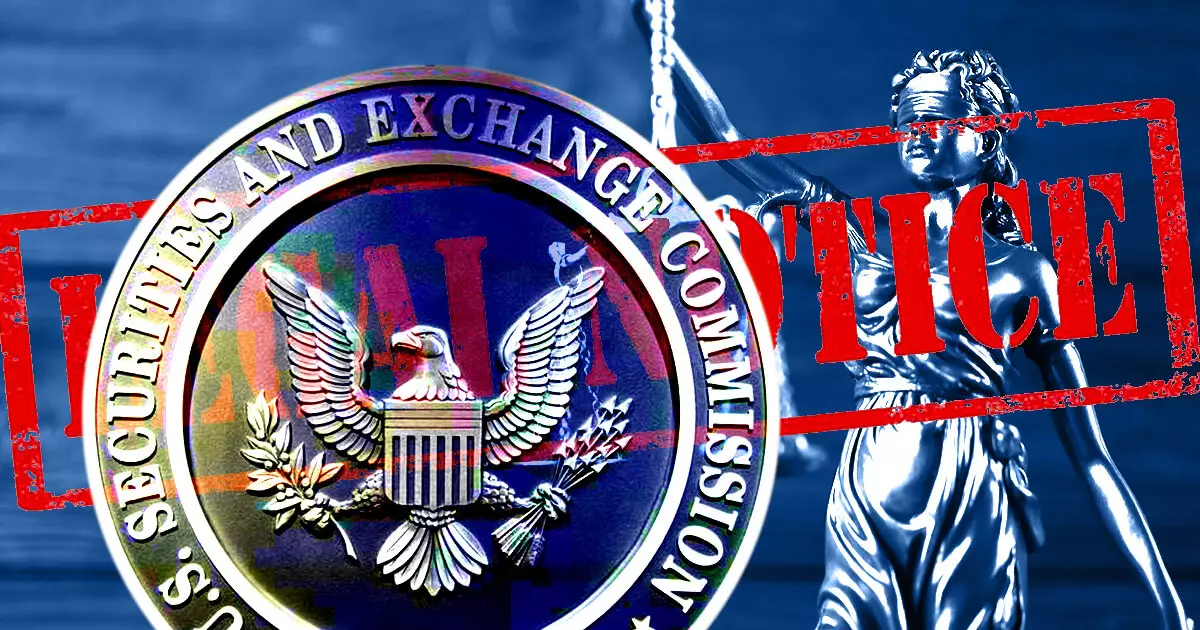In recent months, the U.S. Securities and Exchange Commission (SEC) has aggressively pursued regulatory action against various cryptocurrency businesses. The latest target is Immutable, a prominent player in the blockchain gaming sphere, which recently received a Wells notice from the SEC. This notice has sparked substantial debate about the SEC’s approach to regulating digital assets, particularly in a highly volatile political environment leading up to the U.S. elections.
A Wells notice serves as a preliminary signal from the SEC indicating that it has identified potential securities law violations. In Immutable’s case, released through an October 31 blog post, concerns arise over the listing and private sales of its native token, IMX, occurring back in 2021. Immutable argues that the SEC’s allegations are vague and lack substantial context, positioning this as yet another instance of the regulator’s controversial “regulation-by-enforcement” policy. It raises serious questions about the effectiveness and transparency of the SEC’s communication with crypto firms.
Immutable expressed discontent over the SEC’s lack of proactive engagement prior to issuing the Wells notice. They argue that the agency bypassed significant discussions that could have clarified the regulatory landscape for the IMX token. The complaint underscores a wider sentiment within the industry: that the SEC’s approach hampers innovation by creating an environment of uncertainty and fear. Immutable’s statement reflects a growing frustration echoed by many in the crypto sector, who feel that the SEC is not fostering the clear communication necessary for compliance but rather applying pressure without due consideration.
The allegations brought forth in the Wells notice focus on the potential characterization of the IMX token as a security—an assertion Immutable firmly contests. They emphasize that IMX does not fit the criteria typically associated with securities, a point that remains debated in legal contexts. The company’s insistence on “real consideration” for prior investments introduces another critical layer to the argument, as they believe the SEC’s framing of its communications has led to mischaracterizations and unfounded implications of fraudulent behavior.
Despite facing significant regulatory hurdles, Immutable has declared resolute commitment to its mission. With access to ample resources, the company is prepared to stand its ground in defense of its operations and the broader cryptocurrency ecosystem. They emphasize their role as supporters of builders, creators, and gamers, pledging to continue their development efforts irrespective of the daunting regulatory environment. The message is clear: Immutable intends to navigate these challenges head-on, advocating for an industry that they believe deserves fair and transparent treatment.
As the SEC tightens its grip on the crypto industry, cases like Immutable’s serve as crucial reminders of the ongoing struggle between innovation and regulation. The implications of the SEC’s actions extend beyond individual companies, as they shape the future landscape of cryptocurrency within the U.S. The necessity for open dialogue between regulatory bodies and crypto firms has never been more pressing, signaling a potential turning point in the relationship between innovation and compliance in this fast-evolving sector. Maintaining balance in these interactions will be vital to foster an environment that encourages growth while ensuring consumer protection.
















Leave a Reply